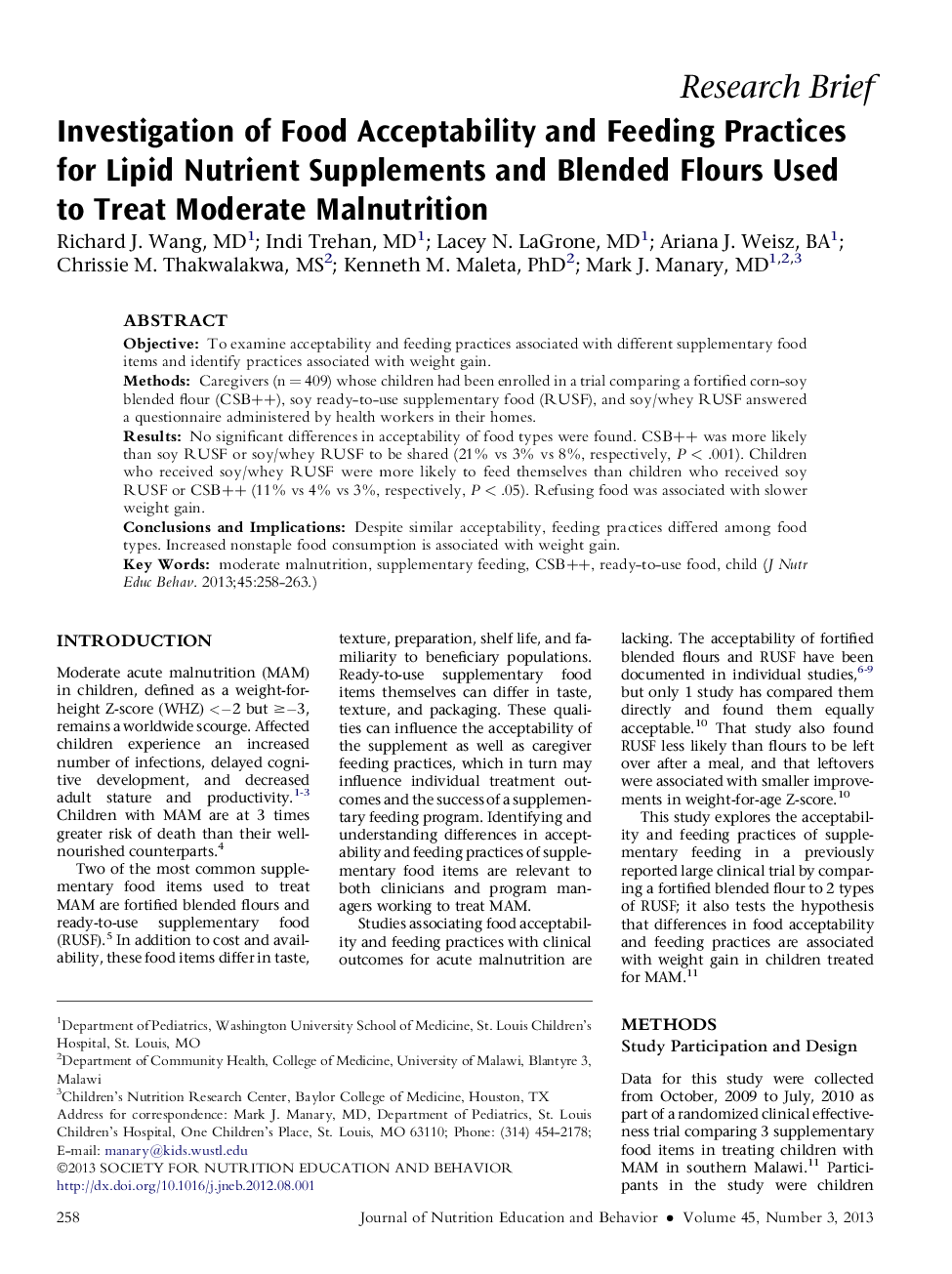| کد مقاله | کد نشریه | سال انتشار | مقاله انگلیسی | نسخه تمام متن |
|---|---|---|---|---|
| 361893 | 620612 | 2013 | 6 صفحه PDF | دانلود رایگان |

ObjectiveTo examine acceptability and feeding practices associated with different supplementary food items and identify practices associated with weight gain.MethodsCaregivers (n = 409) whose children had been enrolled in a trial comparing a fortified corn-soy blended flour (CSB++), soy ready-to-use supplementary food (RUSF), and soy/whey RUSF answered a questionnaire administered by health workers in their homes.ResultsNo significant differences in acceptability of food types were found. CSB++ was more likely than soy RUSF or soy/whey RUSF to be shared (21% vs 3% vs 8%, respectively, P < .001). Children who received soy/whey RUSF were more likely to feed themselves than children who received soy RUSF or CSB++ (11% vs 4% vs 3%, respectively, P < .05). Refusing food was associated with slower weight gain.Conclusions and ImplicationsDespite similar acceptability, feeding practices differed among food types. Increased nonstaple food consumption is associated with weight gain.
Journal: Journal of Nutrition Education and Behavior - Volume 45, Issue 3, May–June 2013, Pages 258–263